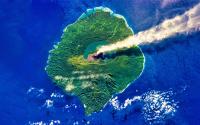17 September 2006Peter Beaumont
Karima Mohammed's men were taken on 5 September. Her husband Saleh Ahmed Mahmoud, 50, and 17-year-old son, Ghazan Saleh Ahmed, were seized by men wearing the uniform of the Iraqi police near the filling station in Zafaraniya in southern Baghdad. The day after they disappeared, her husband's brother received a threatening phone call. He would not tell Karima what the caller said, only that it was 'sectarian' in nature. Since then she has heard nothing. Karima now fears the worst. It would be hard not to - between Wednesday and Friday more than 130 bodies were found, dumped on the dusty streets, the fetid rubbish tips, and floating in the sewers and rivers of the capital. Yesterday morning there were a further 47 corpses. Those killed by sectarian violence now far outnumber Iraqis being killed by suicide car bombs and insurgent attacks - more than 50 have died that way in the city in the past 72 hours.
Karima is a Sunni and her misfortune is to live in a largely Shia area - a stronghold of the Jaish al-Mahdi, the militia of the firebrand preacher Moqtada al-Sadr, a group implicated in the campaign of attacks against Sunni families across Baghdad. In Zafaraniya, bombs have been thrown at Sunni houses. A Sunni mosque has come under attack. People, like Karima's husband and son, have simply disappeared.
Surrounded by her remaining children in the courtyard of her modest home, Karima bursts into tears. 'I am so scared. We don't have any news of them. We can't sleep at night we are so terrified. We are so poor. My family relies on my husband and my son for their wages to live on.' The soldiers of Bravo Battery of the 4-320th Artillery of the US 101st Airborne Division, who came to Zafaraniya on Friday to follow up abduction cases involving Sunnis in the area, are shocked by Karima's plight. They empty their Humvees of anything they can find to help her and her children.
What is happening in Zafaraniya is not unique in the capital. Sunni families in largely Shia neighbourhoods, and Shia families in majority Sunni areas, are being driven out of their homes in the rapidly worsening campaign of sectarian violence and intimidation.
Inspired by Islamic history, a plan for a ditch around Baghdad was announced on Friday to try to stem the flow of weapons being smuggled into the capital. 'Trenches will be dug in the coming weeks,' the Interior Ministry spokesman, Brigadier Abdul-Kareem Khalaf, said. 'They will surround Baghdad.' Khalaf said the plan would restrict vehicle and pedestrian traffic to 28 guarded entry points. The idea was inspired by the Battle of Khandaq in AD627, when Prophet Muhammad protected the city of Medina from an army by digging trenches.
It may take more to protect the city of Baghdad. From Adhamiya in the north, through the giant teeming Shia slum of Sadr City, to Zafaraniya in the south, a slow boiling but malevolent ethnic cleansing campaign is separating two communities that once lived side by side. In the middle are the US forces. Targeted daily by both Shia and Sunni extremists resisting the occupation, they now find themselves trying to protect each community from the other, even as they fend off the lethal attacks on themselves. Round it goes: the bomb and the bullet. A Sunni car bomb kills Shias at the mosque or at the market. Angry, the Shia death squads abduct and slaughter any Sunnis they can find, who retaliate with more car bombs. And on, and on, all in the name of 'community protection'.
It is not quite civil war. Not yet. It is ugly enough, but it lacks the speed and the intensity. Instead, it is a vicious and slow motion three-way fight in which each act is magnified by the spiralling events. Two weeks ago the trigger was in Zafaraniya, a semi-rural area on the outskirts of Baghdad squeezed between the Diyala and the Tigris rivers, surrounded by fields, dense areas of reeds, and towering groves of date palms. Then, Shia pilgrims marching to the shrine at Khadamiya, including a number of Jaish al-Mahdi militia, attacked the scruffy little Sunni Rashid mosque. In the ensuing fighting between mosque guards and the militia, the men of the 320th were forced between the two factions - which on the Jaish al-Mahdi side included members of the local police commando - to try to stop the fighting.
As the violence and threats have intensified in Zafaraniya, more families are fleeing. A week ago it was the turn of Jamal Yousef Mahmoud and his family, who left for Samarra after a bomb was thrown outside his house in the early hours. And some of those Sunnis who remain in Zafaraniya have taken to desperate measures. Like Shakrya Hassan, whose 26-year-old son Falah was taken at the same time as Karima's. Her family, though Sunni, has placed pictures of the venerated figures of the Shia sect of Islam on their walls in the hope no one will ask precisely how they pray.
Zafaraniya is a case study in the crisis facing Iraq. Its largest mosque, a huge green dome and sandy minaret that overlooks the highway, was once Sunni. Now it has been taken over by the militia of the Jaish al-Mahdi, becoming their second biggest base for operations outside Sadr City.
The Jaish al-Mahdi has infiltrated the local police, some of whose officers are blamed for the violence against Sunnis. The militia too controls the filling station and the trade in the propane gas canisters used for cooking. Even 10 Shia families have been driven out by the Mahdi militia when it took over a neighbourhood close to a veterans' hospital to use as a base for their 'reprisal' operations. And the money the Mahdi militia businesses raise, from the transportation of construction materials to protection rackets and cell phone shops, is fuelling Baghdad's dirty war.
Colonel Hussein Muhsin Bahar knows how dirty. Two of his Sunni soldiers were murdered recently along with other members of their families - one group ambushed on the way to fetch the body of one of the soldiers from the city morgue. The Mahdi militia is suspected.
Hussein, the battalion commander with the Iraqi army's only unit in Sadr City, the Jaish al-Mahdi's main base, adds that the group has also sent him death threats and tried to kidnap his son. It is not because of his religion. Hussein is a Shia in command of a largely Shia battalion whose homes are in Sadr City. It is because they see him as a threat. 'They would send me text messages saying "we'll cut off your head",' he said in his battalion headquarters. 'They would send anonymous letters too. At other times the message would come through an intermediary - a warning that said: "Look out the Mahdi Militia is planning to kill you".' Hussein has 700 soldiers under his command, a tiny number for an area whose population numbers more than two million. The Mahdi militia has at least 2,000 card-carrying members and 10 times as many active supporters.
'It is not just me who has been threatened,' says Hussein. 'It is my officers too. But everyone knows the threat comes from the Mahdi militia. They are gangsters. They are behind murders and kidnappings. But at this time they are the strongest force in Sadr City. They don't want to see any challenge. So they intimidate, they threaten to kill. They try to push us away from here.'
Hussein tells a story to illustrate the pressure on his men. 'They started a fight with some of my men at a checkpoint and when an American patrol came it arrested them and took away their weapons. When they were released they came to one of my NCOs and demanded he return the weapons or pay them four million dinars [£1,500] for the loss and for the insult. Otherwise they said they would kill him.'
And while Hussein is robust, it is clear that many of his men, most of whom live inside Sadr City, are intimidated by the group almost to the point of passivity. In the past 10 months they have done little but man checkpoints on the perimeter of Sadr City. In one incident last week, suspected members of the group threw a grenade at one of Hussein's checkpoints. When it failed to explode, the militia members reversed back to the checkpoint as the soldiers watched, got out of the car, and picked it up without a shot being fired.
As the Jaish al-Mahdi, and its parent Sadr Office, grows in strength on the ground, it has presented the Iraqi government and their US allies with a poisonous conundrum. Unable to confront and disarm them by force, a tactic that has failed before when US troops ran running battles with the Jaish
al-Mahdi, the government of Nouri al-Maliki and the multinational forces has been forced into an agreement with the Sadrists that no aggressive operations will be conducted on the ground against them. Instead both parties have opted for a policy of political engagement with the group, a policy, some US and Iraqi officers fear, that is in danger of creating a huge safe haven for the Jaish al-Mahdi inside Sadr City.
'The three-way agreement over Sadr City has created a sanctuary,' said a US officer familiar with the issues. 'There has been an attempt to try to separate the idea of the Sadr Office, the political wing if you like, and the Jaish al-Mahdi, the militia. But the two are completely intertwined. Having created a loophole, we have allowed them to pursue their own interests which means murders, bodies and a lot of sectarian strife which most ordinary Shia in Sadr City don't support.' It is a view endorsed by Hussein. 'They have been given a lot of political space. And they are using it and getting stronger.'
As the Jaish-al Mahdi has grown in strength and confidence, so has the bloodletting. Nowhere is that more visible than in the area of Adhamiya, to the north and west of Sadr City. Separated into halves - one largely Sunni, the other Shia, along the Army Canal - Adhamiya has been the focus in recent weeks of a massive effort by Iraqi and US forces to clear out extremists of both sectarian persuasions - Operation Forward Together - and launch the latest effort to improve the quality of life for the residents there.
While the murder rate in Adhamiya has dropped, it has done so at the cost of US casualties, amid an aggressive sniping campaign against American soldiers. Last week, a civil affairs captain was shot in the hip after going to the aid of a group of Iraqi contractors who had been ambushed and pistol whipped. The success or failure of that operation will be a critical test of whether the further slide towards a wider conflict can be halted.
In Adhamiya's district council offices, on the Sunni side of the canal, the challenges could not be more dramatic. According to the council chairman, Sheikh Hassan Sabri Salman, an imam at one of the local Sunni mosques, 450 families on both sides have been forced out of their homes and across the canal since the bombing of the Golden Mosque in Samarra in February.
'There are fanatics on both sides,' he says. 'The royal cemetery here [the Sunni graveyard] is full of dead bodies killed by the Shia, while the Sunni fanatics have killed many Shia in their turn. They have killed neighbours, employees, even women. We have persuaded the major mosques to sign a statement renouncing violence - but Jihadis and the al-Tawhid on the Sunni side, and the Mahdi militia on the Shia side, do not agree. And if we are talking about the Mahdi militia they are just gangsters who refuse to listen to their religious leaders and instead push people from their houses. Those who are pushing people from their homes on both sides are also stealing. They take their houses, their televisions and their furniture.' Sheikh Hassan describes a family who arrived at his office that morning who had been driven out by the Mahdi militia. Their children, he says, were killed in front of them.
The conflict between the Sunnis and Shias in eastern Baghdad has spawned an intense political struggle over the reigns of local government. With opposing members unable or unwilling to meet at the Adhamiya district council, Shia councillors have begun demanding their own separate council controlling the majority Shia Shaab area that adjoins Sadr City in the east. In Sadr City itself, the district council has been attempting to separate itself from Baghdad's city council to form its own political alliances with other Shia majority councils and draw up their own Shia-vision for Baghdad. The consequences if carried through point towards the gradual creation of ghettoes organised and administered along sectarian lines.
One US military intelligence officer with an interest in the Jaish al-Mahdi and the Sadr Office, said: 'Certain parts are now operating like old-fashioned mobs. In the last year or so power has been given to certain individuals. They have created their own small armies which have gained power by controlling rackets around petrol stations, and thefts from people they kidnap and kill. What we have started to notice is that Moqtada al-Sadr, who is now based in Najaf, is having difficulty controlling these people who derive their power from his name. It has forced people to reassess what the Jaish al-Mahdi really is.'
It is a recognition, in large part, that has persuaded the US and Iraqi government that the way to tackle the Mahdi militia violence is not through military operations but policing, and an extra 5,000 Iraqi policemen are to join the 2,000 already deployed in Sadr City. US officers, aware of the history of massive infiltration of the Iraqi police, and its implication in death squad activities, admit it is a gamble that could backfire by arming and equipping thousands more gunmen but believe it is a risk worth taking.
For now, however, it is no comfort for those on either side of the sectarian divide, forced out of their homes. No comfort for the families of the missing and the dead. No comfort for Karima.
http://observer.guardian.co.uk/print/0,,329578703-119093,00.html






